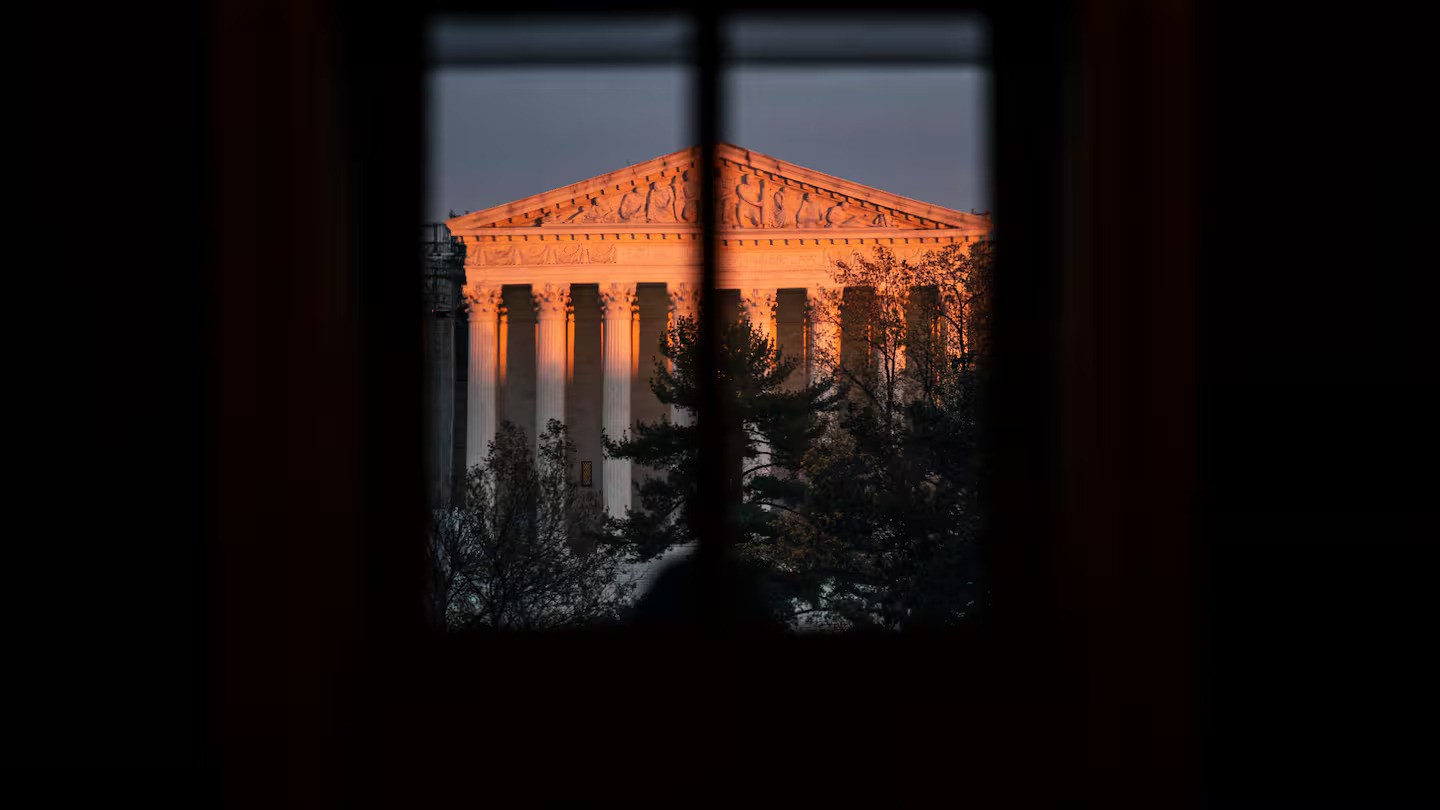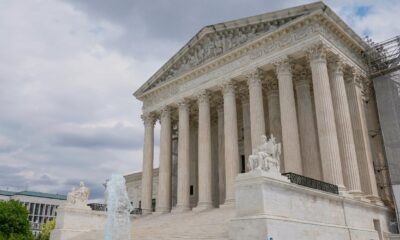Lifestyle
Supreme Court Upholds Transgender Student’s Bathroom Rights

The US Supreme Court declined to block a ruling that allows a 14-year-old transgender student to use the school bathroom that aligns with his gender identity. This decision came today when the Court dismissed an emergency appeal from South Carolina, which sought to overturn a lower court’s preliminary injunction permitting the student to use the boys’ restroom while he challenges the state’s bathroom restrictions for transgender individuals.
The Supreme Court’s majority indicated that South Carolina had not met the necessary criteria for an emergency reversal. They clarified that the denial of the application does not reflect a judgment on the legal merits of the case but rather on procedural standards for obtaining urgent relief. Justices Clarence Thomas, Neil Gorsuch, and Samuel Alito, all of whom hold conservative views, expressed their dissent, stating they would have favored blocking the student’s use of the boys’ restroom.
Background of the Case
The preliminary injunction specifically applies to the unnamed student, who attends a high school in Berkeley County, located outside of Charleston. This ruling arrives as the Supreme Court is preparing to hear a significant case next month regarding whether states can prohibit transgender athletes from competing on girls’ and women’s sports teams in educational institutions. More than two dozen states have enacted such bans.
The current case began when South Carolina linked school district funding to compliance with a law mandating that students use bathrooms corresponding to their biological sex. The student, referred to as John Doe in court documents, was assigned female at birth but has identified as male since childhood. Following an incident where he used the boys’ bathroom, he faced suspension and possible expulsion, prompting his parents to withdraw him from school and enroll him in an online program. This decision left him feeling academically disengaged and socially isolated, leading to his desire to return to in-person classes under the condition that he could use the bathroom of his choice.
In 2024, the family filed a lawsuit against the state and school district, claiming that the bathroom restrictions violate Title IX, which prohibits sex discrimination in educational settings, as well as constitutional provisions ensuring equal treatment. Although an initial ruling on the request for a preliminary injunction was delayed, the case gained traction following the passing of similar bathroom restrictions by the state legislature.
The US Court of Appeals for the 4th Circuit subsequently granted the student an injunction against the enforcement of the bathroom rule, basing its decision on a landmark 2020 case involving Gavin Grimm, a transgender student from Virginia. The appeals court found that similar restrictions had violated Title IX and the Equal Protection Clause. The Supreme Court chose not to review the earlier ruling.
Responses and Implications
In August, South Carolina filed an emergency appeal requesting the Supreme Court to uphold the state’s bathroom restrictions, asserting that recent rulings on state bans for transgender treatment and the pending case on transgender athletes undermine the precedent set in the Grimm case. The state argued that the matter is emotionally charged and warrants deference to lawmakers while the appeal is pending.
The legal team representing the student countered that such restrictions inflict significant harm, leading transgender students to avoid using bathrooms altogether, which can result in psychological distress, anxiety, dehydration, and physical discomfort. Alexandra Brodsky, a lawyer with Public Justice’s Students’ Civil Rights Project, expressed satisfaction with the Supreme Court’s decision, stating, “Today’s decision from the Supreme Court reaffirms what we all know to be true: Contrary to South Carolina’s insistence, trans students are not emergencies. They are not threats. They are young people looking to learn and grow at school, despite the state-mandated hostility they too often face.”
This ruling not only affects the student involved but also holds wider implications as the Supreme Court prepares to address similar issues in the upcoming term. As debates over transgender rights continue to evolve across the United States, the outcome of these cases could significantly shape policy and perceptions concerning transgender individuals in educational environments.
-

 World3 weeks ago
World3 weeks agoPrivate Funeral Held for Dean Field and His Three Children
-

 Top Stories3 weeks ago
Top Stories3 weeks agoFuneral Planned for Field Siblings After Tragic House Fire
-

 Sports3 months ago
Sports3 months agoNetball New Zealand Stands Down Dame Noeline Taurua for Series
-

 Entertainment3 months ago
Entertainment3 months agoTributes Pour In for Lachlan Rofe, Reality Star, Dead at 47
-

 Entertainment2 months ago
Entertainment2 months agoNew ‘Maverick’ Chaser Joins Beat the Chasers Season Finale
-

 Sports3 months ago
Sports3 months agoSilver Ferns Legend Laura Langman Criticizes Team’s Attitude
-

 Sports1 month ago
Sports1 month agoEli Katoa Rushed to Hospital After Sideline Incident During Match
-

 World4 weeks ago
World4 weeks agoInvestigation Underway in Tragic Sanson House Fire Involving Family
-

 Politics2 months ago
Politics2 months agoNetball NZ Calls for Respect Amid Dame Taurua’s Standoff
-

 Top Stories3 weeks ago
Top Stories3 weeks agoShock and Grief Follow Tragic Family Deaths in New Zealand
-

 Sports2 weeks ago
Sports2 weeks agoEli Katoa Shares Positive Recovery Update After Brain Surgery
-

 Entertainment6 days ago
Entertainment6 days agoJacinda Ardern Discusses Popularity Decline on Graham Norton Show





















